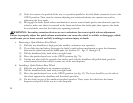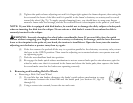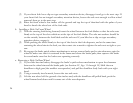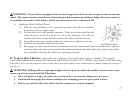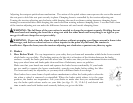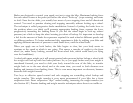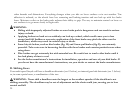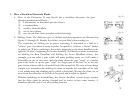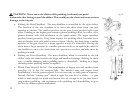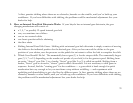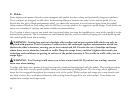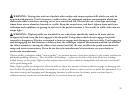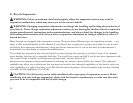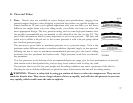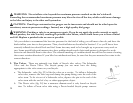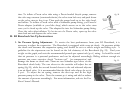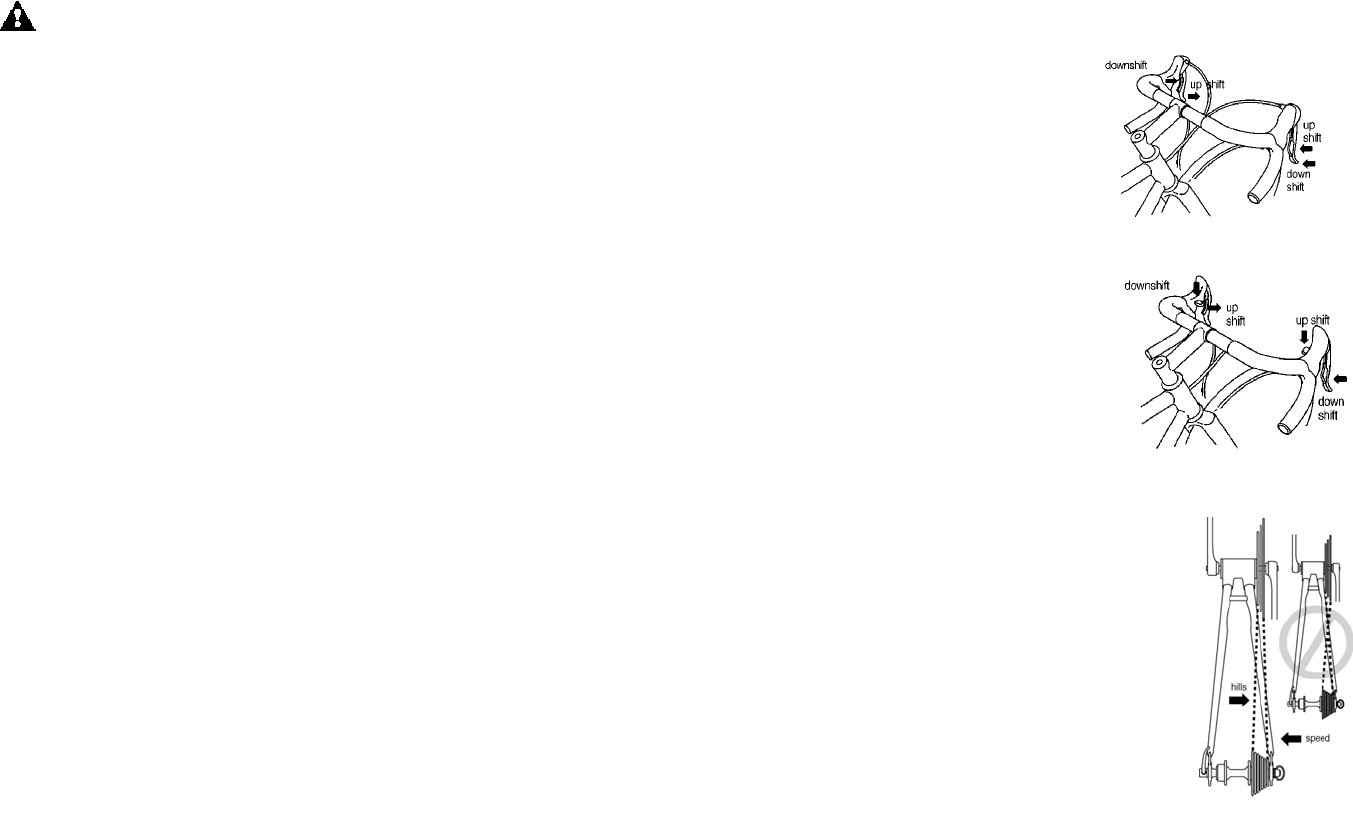
32
CAUTION: Never move the shifter while pedaling backward, nor pedal
backwards after having moved the shifter. This could jam the chain and cause serious
damage to the bicycle.
c. Shifting the Rear Derailleur. The rear derailleur is controlled by the right shifter.
The function of the rear derailleur is to move the drive chain from one gear
sprocket to another. The smaller sprockets on the gear cluster produce higher gear
ratios. Pedaling in the higher gears requires greater pedaling effort, but takes you a
greater distance with each revolution of the pedal cranks. The larger sprockets
produce lower gear ratios. Using them requires less pedaling effort, but takes you a
shorter distance with each pedal crank revolution. Moving the chain from a smaller
sprocket of the gear cluster to a larger sprocket results in a downshift. Moving the
chain from a larger sprocket to a smaller sprocket results in an upshift. In order for
the derailleur to move the chain from one sprocket to another, the rider must be
pedaling forward.
d. Shifting the Front Derailleur. The front derailleur, which is controlled by the left
shifter, shifts the chain between the larger and smaller chainrings. Shifting the chain
onto a smaller chainring makes pedaling easier (a downshift). Shifting to a larger
chainring makes pedaling harder (an upshift).
e. Which Gear Should I Be In? The combination of largest rear and smallest front
gears(fig. 21) is for the steepest hills. The smallest rear and largest front
combination is for the greatest speed. It is not necessary to shift gears in sequence.
Instead, find the “starting gear” which is right for your level of ability — a gear
which is hard enough for quick acceleration but easy enough to let you start from a
stop without wobbling- and experiment with upshifting and downshifting to get a
feel for the different gear combinations.
fig. 19
fig. 20
fig. 21



